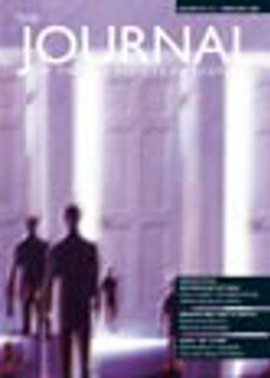Plain speaking
Introduction
This column continues last month’s topic of punctuation. I mentioned then the idea of authorities disagreeing about correct punctuation. This month’s first subject, the comma, is a perfect example of something the authorities disagree about. I am not an authority so that shouldn’t stop you disagreeing with my approach if you think it’s wrong. What is more important, as I have repeatedly stressed, is the need to write for your audience. Remember: “you put in stops to help your readers understand you, not to please grammarians.”
Comma
The best way to use a comma is to put it where you think your writing needs it. That’s the closest I would go to proposing a comma rule. But the following examples should help guide you.
Criminal law is exciting, property law is challenging.
This is wrong. There are two separate sentences so the writer should keep them separate – with a full stop or a semicolon – or join them with a conjunction.
Please tell us for our regulatory records, of any commission paid.
This is wrong, too. Here, the writer uses one comma when he should either use none or two. So, for example, he could write: Please tell us, for our regulatory records, of any commission paid.
I have studied the file, and confirm the assistant, who dealt with this matter, carried out the right procedure.
This is another wrong use of the comma. In "The Complete Plain Words" Gower suggests writers know the difference between a commenting and a defining relative clause. The next two (correct) examples show the difference.
We need to cater for accident and emergency admissions, who owing to their lack of preparation, will need certain supplies.
This sentence has a commenting relative clause. The comma introduces an explanation why there’s a need to do something for accident and emergency admissions. The meaning is different with no commas.
Any money lent to students who are not borrowing from the Student Loan Company will be on commercial terms.
This sentence has a defining relative clause. There are no commas because the relative clause defines what cases the writer is talking about.
The writer should use commas with a commenting relative clause, but not with a defining relative clause.
A commenting clause will probably need commas but a defining clause should not.
I should like to plead with some of these men who now feel ashamed to join the Colonial Service.
This example, taken from the "Complete Plain Words", shows why the writer must pay attention to punctuation. The Colonial bishop who wrote this seemed to be suggesting men might feel ashamed of joining the Colonial Service. He had missed out the comma after “ashamed”. The sentence has a different meaning with that comma.
The writer should consider two guidelines for commas:
- Do not use commas unless you need to.
- Where possible, make the meaning clear without commas.
Or, to put it another way, pay attention to your writing and the commas will sort themselves out.
Full stop
You should use a full stop to separate statements between which there is no continuity of thought.
In the State of Florida there are too many lawyers for the available jobs in the profession. Visitors to the tourist sites report falling standards of customer care from resort staff.
You wouldn’t want to link these sentences – I hope.
For every rule there is an exception. The full stop is the exception to the rule that there should be few stops. You should try to keep your sentences short. If you do that you will use many full stops. But this topic allows me to repeat an earlier piece of advice: you should mix long and short sentences so the rhythm doesn’t drive the reader to distraction. The best writing is a carefully considered and well-constructed mix of long and short sentences. Gowers includes a quote from Mark Twain. After recommending young authors write short sentences as a rule, Twain wrote:
At times he may indulge himself with a long one, but he will make sure that there are no folds in it, no vagueness, no parenthetical interruptions of its view as a whole; when he has done with it, it won’t be a sea-serpent with half of its arches under the water; it will be a torch-light procession.
More reading
Plain English for Lawyers (fourth edition), by Richard C Wydick, Carolina Academic Press (2002); ISBN 0 89089 994 0
If the subject interests you, get this book. It is a small, easy to read, practical work that deals with exactly what it says on the cover. Wydick skilfully presents the theory of all the necessary subjects and helps you check your understanding with many exercises and suggested answers.
In this issue
- Consistency needed on defective representation
- Profitability squeezed for sole practitioners
- Effective Council helps profession flourish
- What to expect in a mediation
- Video evidence now a nuisance?
- Pleading for a collegiate profession
- E-mail search warrants in seconds
- Plain speaking
- Seven steps to effective risk management
- Europe
- Book reviews






